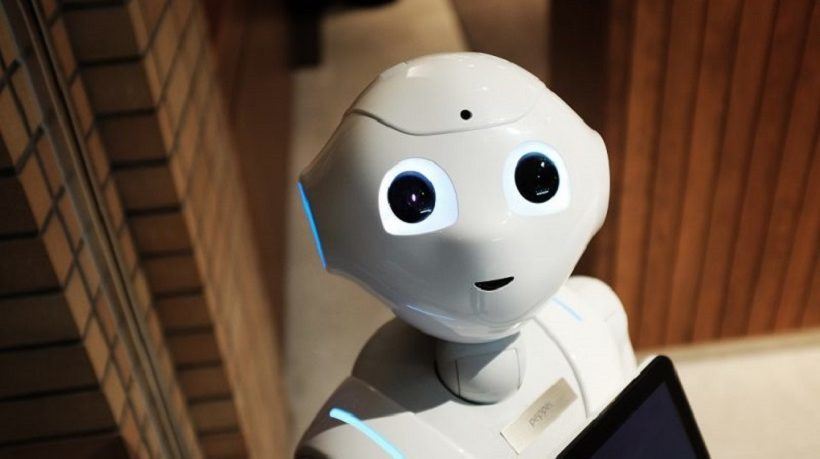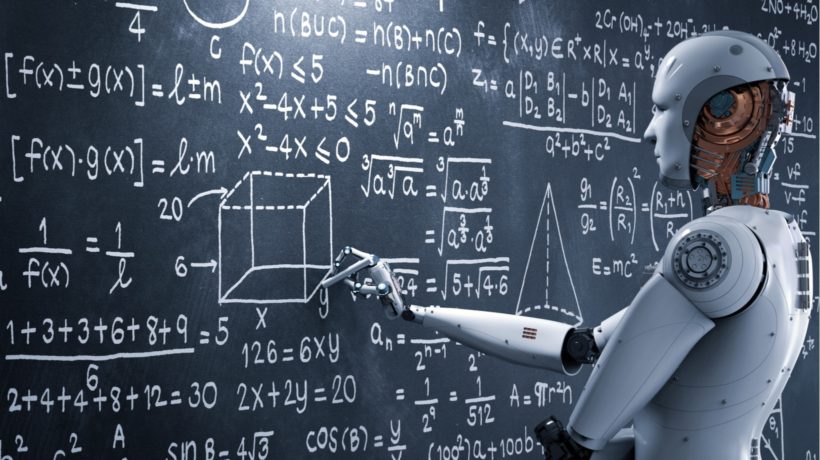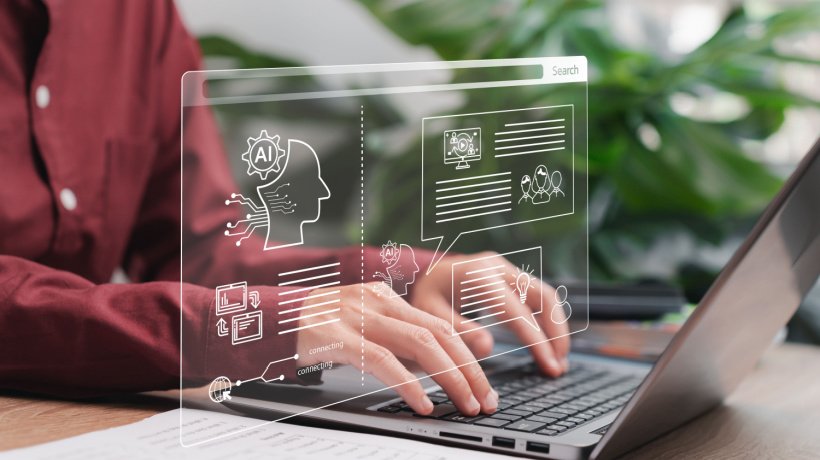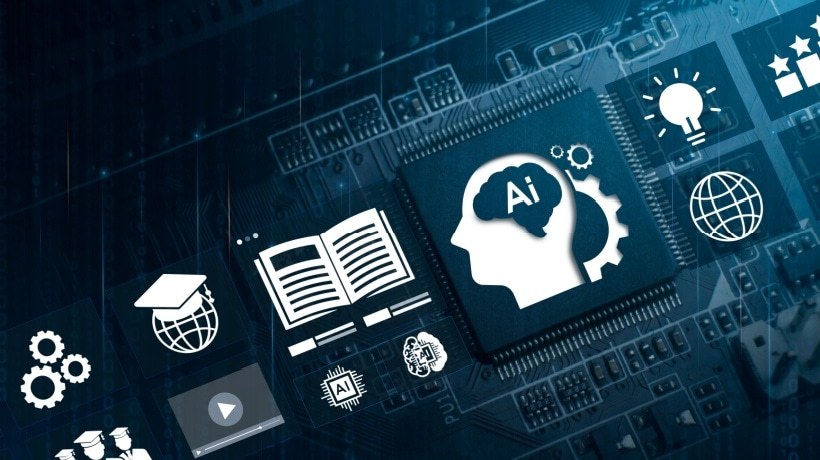How Artificial Intelligence Is Changing Education
Every couple of years internet announces a grand start of a new era. It’s a hot topic: Everyone wants to try out the future. With eras changing so rapidly, even education, the most slow-blooded body in our society, got dragged into the epicenter of it.
The first huge impact that education felt happened in 1990s, when everyone was shouting about the information era. Education absorbed the hit and turned abundance of information into a mundane aspect of schooling.
2000s brought the technology era: Technologies seeped into everything and attempted to reshape education. A decade later, it doesn’t take our breath away anymore. In fact, we have come to expect nothing less from edTech.
In the recent years, there is a new hype: The era of artificial intelligence.
A constant villain in sci-fi novels and movies, artificial intelligence has landed. The round of debates is on: The see-saw arguments of positive impact vs horrible consequences; next stage of development vs a threat of evil machines from the future. Who is wrong? What to believe?
Artificial Intelligence is changing education. This article analyzes the real relationship between education and AI.
Blame It All On Sci-Fi Writers
The biggest splash comes from AI enthusiasts and impressed sci-fi readers who claim Strong AI is almost here and will soon turn our world into a futuristic scene. The term “strong” aka “true” means that AI shows intellectual abilities of such complexity that they rival human brain.
There is also a factor of fear of super-intelligence.
The term appeared in sci-fi in 1960s, and is used still. Super-intelligence is a True AI created by humans, powerful enough to create intelligent machines on its own and thus being able to eliminate humans as the weak link in the new world order.
Even Bill Gates thinks it is something we must keep in mind and try to prevent from happening, but as of now, this scenario is far from occurring.
Artificial intelligence indeed is a simulation of human intelligence by a machine and it analyzes information similar to how a human brain would, but it does not do it quite in the same way. What it means is that machines lack perspective, moral codex, and ingenuity of humans.
While it may seem that scientists have created strong or super-intelligent AI already, it is just a false impression: the many artificial intelligences operating in the world, not just in education, have limitations. Most AIs are narrow, that is created for just a particular scope of work. They are as good at their tasks as their creators have programmed them to be.
Humans feel “creeped out” or “alarmed” by AI because they lack accurate information on it. Let’s look at some recently emerging of them below.
Emma Wants To Turn It All On Its Head
Emma’s creators have promised a beta-version release in 2017. What she claims to do is to change the way plagiarism is detected: not to point fingers at cheaters; but to make it about the value of authorship and originality. Teachers can rest assured that their students do not cheat and present their own ideas. Students can take pride in their papers and writing style.
Simply put, Emma is an artificial intelligence entity that is said to attribute authorship.
She studies writings (8000 words written by one person is enough to carefully study the writing style) and gives her verdict: Stating whether that person really wrote the piece or not. Basically, Emma puts plagiarism checking in any written paper on its head.
Of course, for education, especially in the recent decades of information era, checking papers for authorship is getting both harder and more relevant.
Additionally, Emma can prompt how much of that paper was written by that student, how much was done in collaboration with peers, and so on. Sounds a bit unreal for now, but soon our doubts will be dispelled.
Ms. Jill Watson’s Excellent Performance
Ms. Jill Watson, the teacher’s assistant at Georgia Tech was unbelievably good at her job: Dealing with forum with more than 10000 questions, she didn’t miss a single post and gave timely helpful suggestions and replies. Students were impressed and pleased with Ms. Watson.
Of course, Jill Watson was the AI developed by Professor Ashok Goel and Georgia Tech graduate students who have built Jill on the basis of IBM’s Watson Platform. Ms. Watson studied the most popular questions and answers through the years and learned how to answer similar questions.
IBM Watson Platform’s reach goes much further: They invite everyone to create chatbots, for any purpose of online question-and-answer sessions.
The most amazing part of the story is that most of the students have not noticed that Ms. Watson was not human. If she were a human, she would have to spend more than a year working round clock and answering posts. AI Watson didn’t even break a sweat, and no student was left unattended to.
Still AI, Even If It Doesn’t Have A Human Name
Some AIs are much less personalized, and so perceived with less mistrust. This is particularly true in the areas once treated as only manageable by humans, like grading.
Instead of having educators go through pounds and gigabytes of homework, tests, and projects to grade, there are AIs now that can do it for teachers. With the technological era upon us, we are talking about a possibility of having 10000 students in one class, and each of their paper, homework and test needs to be graded. That is no easy task.
Gradescope grades students’ papers and makes it fast and efficient. Artificial Intelligence developed by four Berkley graduates can understand what types of questions are being asked; differentiate written marks; and recognize handwriting. What is more important, it can save up to 90% of time an educator dedicates to grading.
This is where people feel threatened by AI: they are afraid of losing jobs to Artificial Intelligence. While it is true to some extent, Artificial Intelligence will never replace teachers because of one flaw that every AI has: lack of human touch.
The Fatal Flaw Aka The Ultimate Advantage
Human touch in AI is absent, and it is not a bad thing. This flaw is also AI’s strength.
Human connection and personal touch is absolutely essential in education, more so than in any other area. To learn, to be engaged in the class, a student needs a personal contact with the teacher. He or she requires certain level of personalization, individual attention and involvement. These are all parts of a human touch.
That’s why combining humans and artificial intelligence in the workplace works so well and gives such great results. Teachers, masters of communication with any type of students, bring the human touch to AIs and enrich them.
So this is the classroom of the AI era:
AI grades tests, answers inquiries, and checks papers for authorship.
Teacher engages students, gives them knowledge, and inspires them to listen and to learn.
This sounds like an awesome class.









